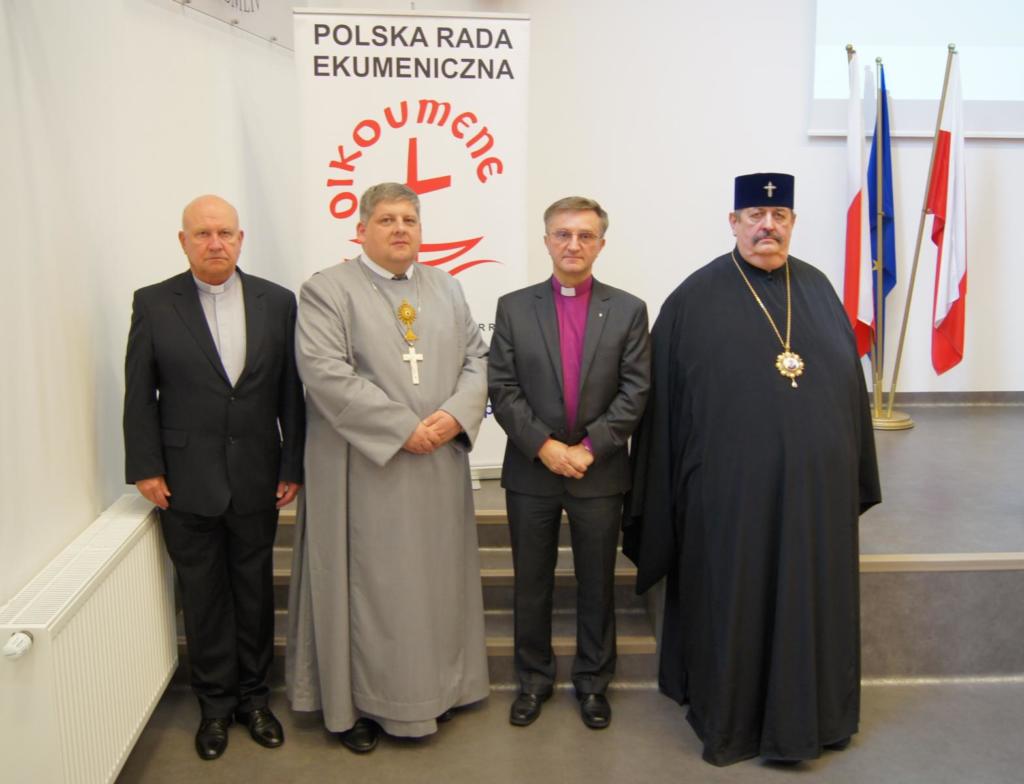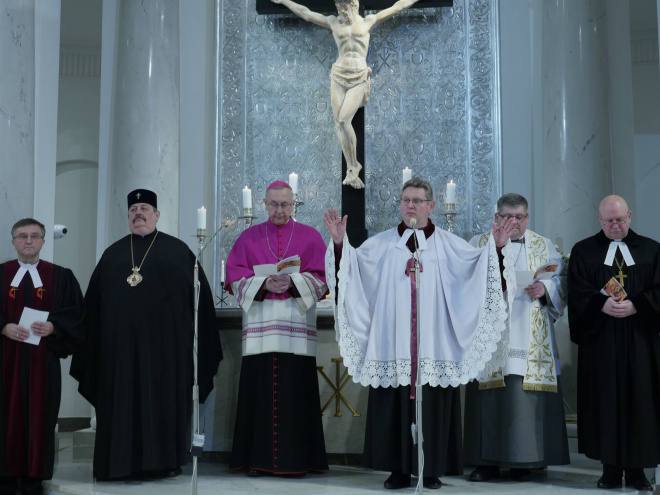Many consider Poland to be a Roman Catholic country and a country of religious people. Meanwhile, in recent years there has been a slow decline in the level of religious belief and a faster decline in the level of practice (according to the Center for Public Opinion Research). Statistics in June 2022 showed that 84 percent of adults described themselves as believers, with 42 percent practicing regularly. The majority of Poles, that is, 92 percent, belong to the Roman Catholic Church.
However, Poland is not only this one Christian denomination. In 2022, there were officially 191 registered churches and religious associations (not only Christian). The legal status of 15 of these is regulated by statute; another 171 are listed in the so-called Register of Churches and Other Religious associations kept by the Ministry of the Interior and Administration.
The second largest religious group are members of the Orthodox Church (0.9%). Members of Protestant churches make up 0.3%, Jehovah’s Witnesses 0.2%, and members of the Greek Catholic Church 0.1% of Poland’s population. This picture may, however, differ slightly from reality, as it is not entirely clear to what extent the research study, conducted before the Russian aggression against Ukraine, included economic migrants from Ukraine, Belarus, or, for example, India and Vietnam. At the beginning of 2023, it was estimated that there could be around 1.7 million refugees from Ukraine in Poland, not counting those who were already there before. Regardless of this, a trend of a slow loss of church importance has been observed in Polish society for a long time.
Despite its apparent homogeneity, Poland has a very interesting ecumenical landscape, which is a carbon copy of everything that is happening in the global ecumenical movement.

Besides the PRE, we have the ecumenical Bible Society in Poland, the Evangelical Alliance, the Polish Christian Forum, ecumenical movements in the Roman Catholic Church, and official dialogue structures with other churches. There is the annual Week of Prayer for Christian Unity, the World Day of Prayer, and one of the most recent events, the Season of Creation. It may seem strange that it is only recently that the climate justice topic has emerged in the Polish ecumenical movement, but it has nevertheless become significant in recent years.
The Polish Ecumenical Council or PRE was founded in 1946 by 12 Evangelical, Old Catholic, and Orthodox churches. Currently it is a fellowship of seven churches and two affiliated organizations. It includes the: Baptist Church (5,500), ECACP (60,500), Evangelical Methodist Church (4,000), Evangelical Reformed Church (3,200), Polish-Catholic Church (25,000), Old Catholic Mariavite Church (22,000), and the Polish Autocephalous Orthodox Church (600,000). The council’s churches represent approximately two percent of the Polish population. The two organizations affiliated to the council—the Social Society of Polish Catholics and Bible Society in Poland—have been active since 1816 and they comprise 11 churches.
In 2018, Bible Society published an ecumenical translation of the Bible into Polish, and although it was not the first translation into Polish, it was the first to be prepared and accepted by all the churches belonging to the Bible Society.
The PRE is part of the international ecumenical movement, has associate council status with the World Council of Churches, is a founding member of the Ecumenical Youth Council in Europe, and a member of the International Academy for Diaconia and Social Action (interdiac). It supports and cooperates with the National Committee of the World Day of Prayer, the Conference of European Churches, the European Christian Environmental Network, and the Churches’ Commission for Migrants in Europe. Since 1974 there has been a Commission for Contact between PRE and the Evangelical Church of Germany. Among the German churches, the Evangelical Church of Hesse and Nassau and the Evangelical Church of Westphalia are also partners. PRE also cooperates with the Frankfurt-based Evangelical initiative Zeichen der Hoffnung – Znaki Nadziei, which helps former concentration camp prisoners from the Second World War.
The Christian Theological Academy is a unique entity founded in 1954 as a continuation of University of Warsaw’s Faculty of Evangelical Theology and School of Orthodox Theology, which were established after the First World War. Today it has two faculties; theology and social sciences, of which three theological sections train religious education clergy and teachers from various Christian churches.
Dialogue with the Roman Catholic Church is essential for Polish ecumenism. It is conducted on an official level mainly by the PRE. The Joint Commission of the Polish Bishops’ Conference (KEP) for Ecumenism and the PRE was established in 1974. Within the KEP itself, teams for dialogue with the Orthodox, Lutheran, Polish-Catholic, Old Catholic Mariavite, and Adventist churches were established, followed by the creation of bilateral commissions with these communities (the Catholic-Mariavite commission concluded its work in 2011).

The cooperation has resulted in jointly developed documents, appeals, and statements. This includes the Declaration on Mutual Recognition of the Validity of Baptism; appeals on the protection of creation, respect and celebration of Sunday; and a message on refugees. A document on mixed marriages is still awaiting the Holy See’s approval.
Ecumenism is first and foremost a social grassroots movement, which over time develops its own structures. In Poland there are also ecumenical organizations known in other countries, such as Chemin Neuf, Focolare, or Taizé. Polish associations have also been established, including the EFFATHA Peace and Reconciliation Association, the Christian Ecumenical Association in Ustroń, and the Ecumenical University of the Third Age in Warsaw.
Perhaps one of the most spectacular events is the Week of Prayer for Christian Unity, which is celebrated annually, and attended not only by the Roman Catholic Church and PRE churches and those associated with the Bible Society, but also by representatives and believers of churches that do not necessarily dialogue with each other on a daily basis. And although also in Poland, as in other countries, it seems that ecumenical enthusiasm has weakened in recent years, it is the pulse of ecumenism to pray together.